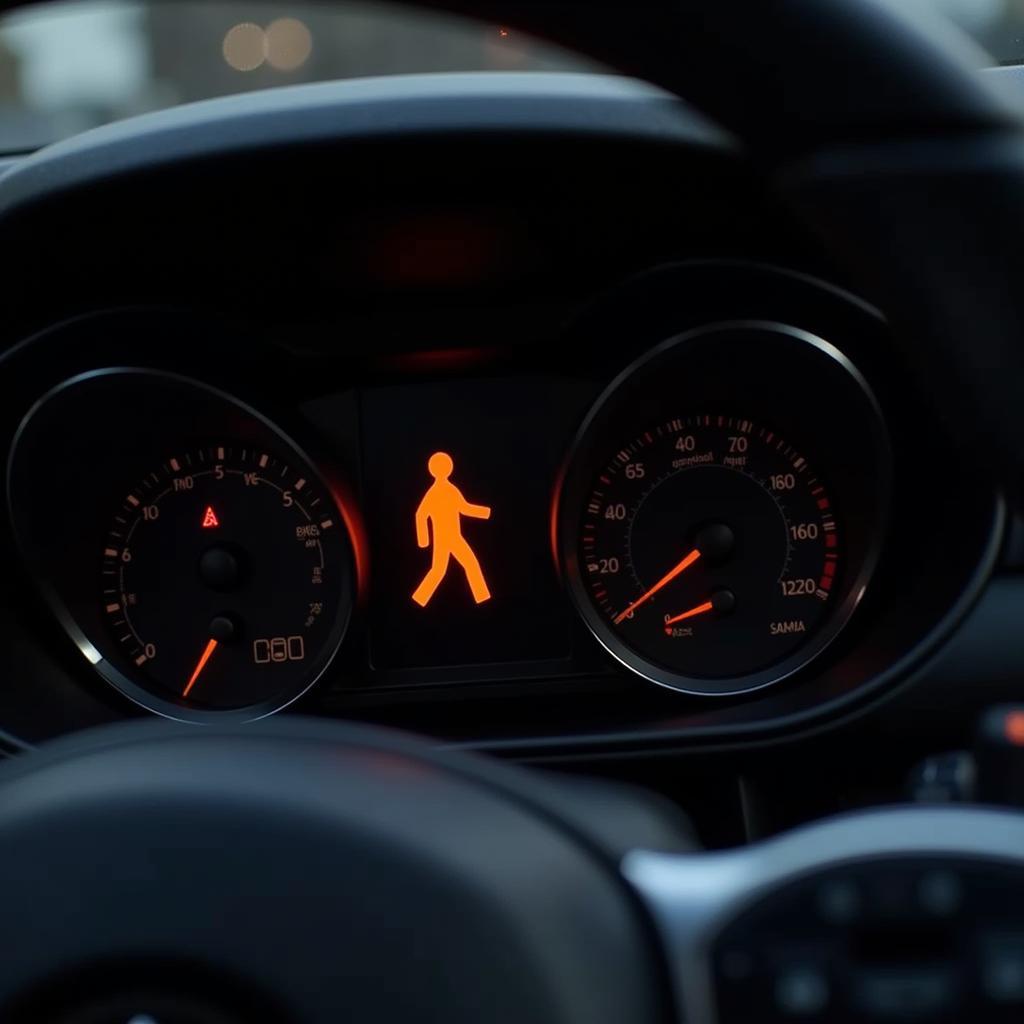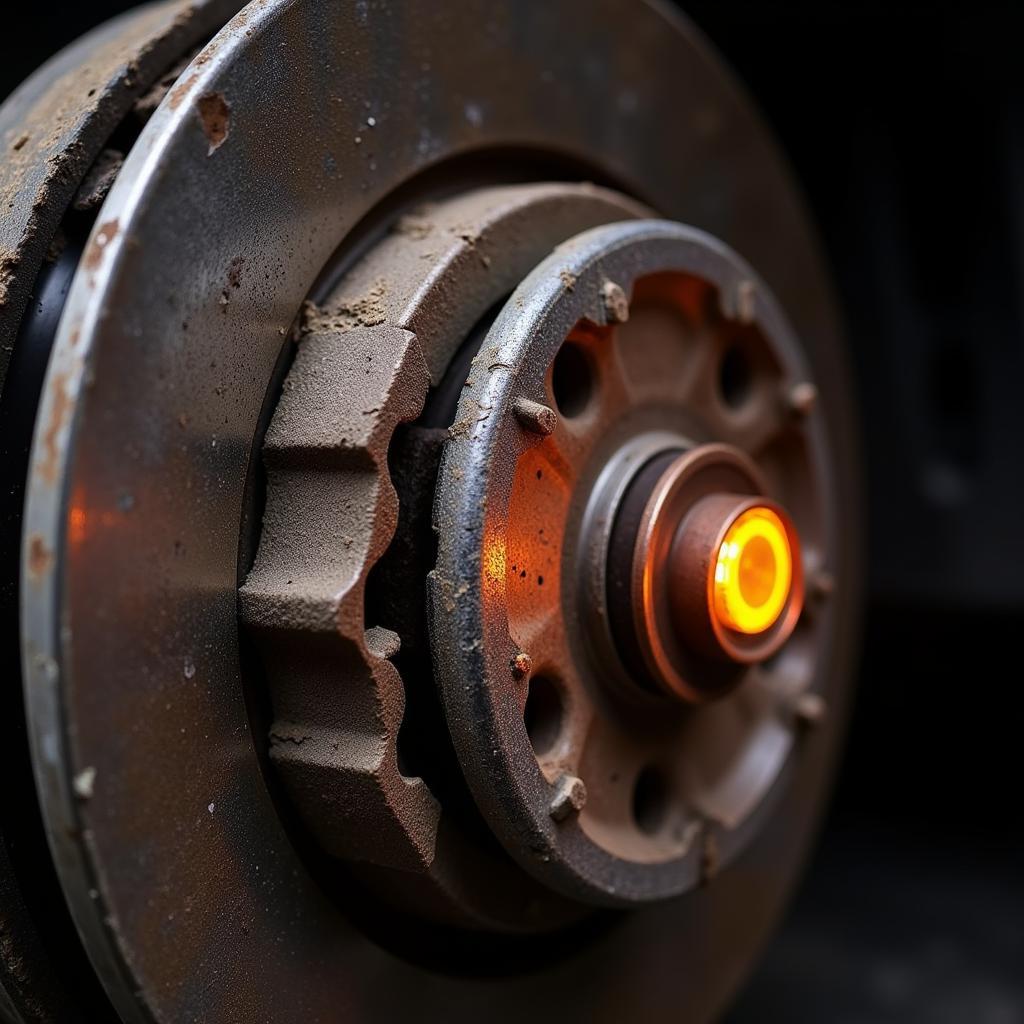A “Trailer Brake System” warning flashing on your 2014 Chevy Silverado’s dashboard can be a nerve-wracking experience, especially when towing a heavy load. This warning signal indicates a potential issue with your truck’s trailer brake control module, wiring, or the trailer brakes themselves. This comprehensive guide will delve into the common causes of this warning light, provide troubleshooting steps, and offer potential solutions to help you get back on the road safely.
Understanding Your Silverado’s Trailer Brake System
Before diving into troubleshooting, it’s crucial to grasp how your Silverado’s trailer brake system operates. Essentially, it works in tandem with your truck’s regular braking system to ensure safe and controlled stops, especially when towing heavy trailers. When you apply the brakes, the trailer brake controller sends an electrical signal to the trailer’s brakes, engaging them proportionally to the pressure you apply on the brake pedal.
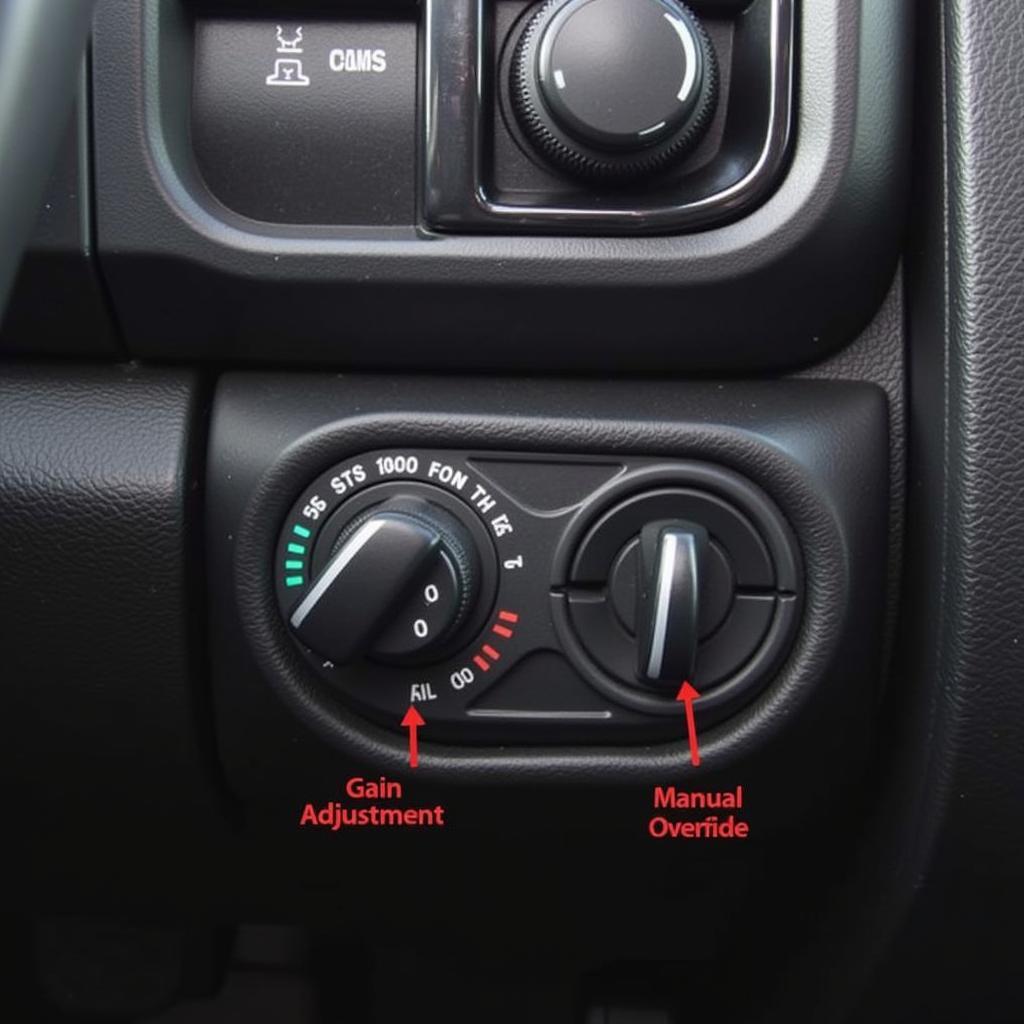 2014 Chevy Silverado Trailer Brake Controller
2014 Chevy Silverado Trailer Brake Controller
Common Causes of the Trailer Brake System Warning
The “Trailer Brake System” warning on your 2014 Silverado can be triggered by a range of issues, from simple connectivity problems to more complex electrical faults. Here are some of the most prevalent culprits:
-
Loose or Corroded Wiring: The most common culprit is often loose or corroded wiring connections between your truck and the trailer. Over time, exposure to the elements can lead to corrosion on the trailer hitch connector and wiring harness, disrupting the electrical signals between your truck and the trailer.
-
Faulty Trailer Brake Controller: The trailer brake controller is the brain of your trailer brake system. If it malfunctions due to a blown fuse, internal fault, or water damage, it can trigger the warning light and disrupt the trailer’s braking system.
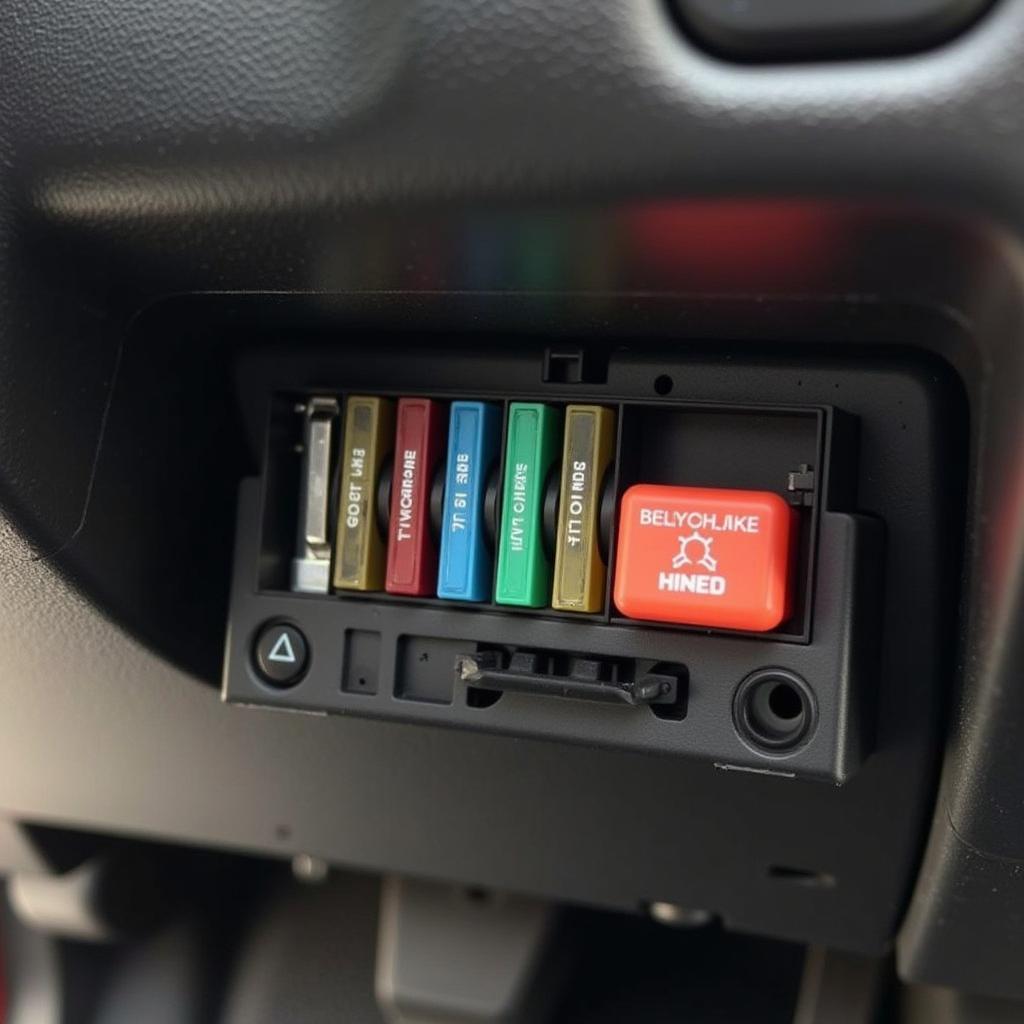 Blown Fuse in Silverado Trailer Brake Controller
Blown Fuse in Silverado Trailer Brake Controller
-
Issues with the Trailer Brakes: Problems with the trailer’s brakes themselves, such as worn-out brake shoes, malfunctioning wheel cylinders, or a faulty brake away kit can also set off the warning light.
-
Incorrect Trailer Wiring Configuration: If your trailer is not wired correctly or if it’s incompatible with your Silverado’s electrical system, it can lead to communication errors and trigger the warning light.
-
Software Glitch: In some cases, a temporary software glitch within your Silverado’s electronic control unit (ECU) can incorrectly activate the warning light, even if there’s nothing wrong with your trailer brake system.
Troubleshooting the Trailer Brake System Warning
Before heading to a mechanic, there are several troubleshooting steps you can undertake to identify the root cause of the warning:
-
Check the Trailer Connection: Begin by inspecting the 7-way trailer connector on your Silverado and the corresponding plug on your trailer. Look for any signs of damage, corrosion, or bent pins. Disconnect the trailer and use a test light or multimeter to ensure each pin on the truck side is receiving power.
-
Inspect the Trailer Brake Wiring: Carefully examine the wiring harness that connects your Silverado to the trailer. Look for any loose connections, exposed wires, or signs of damage. Pay close attention to the area around the trailer hitch, where the wiring is most susceptible to wear and tear.
-
Inspect the Trailer Brakes: If possible, visually inspect the trailer’s brakes. Look for worn brake shoes, leaks in the wheel cylinders, or any other signs of damage. If you’re not comfortable inspecting the brakes yourself, consult a qualified mechanic.
-
Check the Trailer Brake Controller Fuse: Locate the fuse box for your 2014 Silverado, usually located under the dashboard or under the hood. Consult your owner’s manual to identify the specific fuse for the trailer brake controller. Visually inspect the fuse for any signs of a blown fuse, such as a broken wire or a dark spot within the fuse.
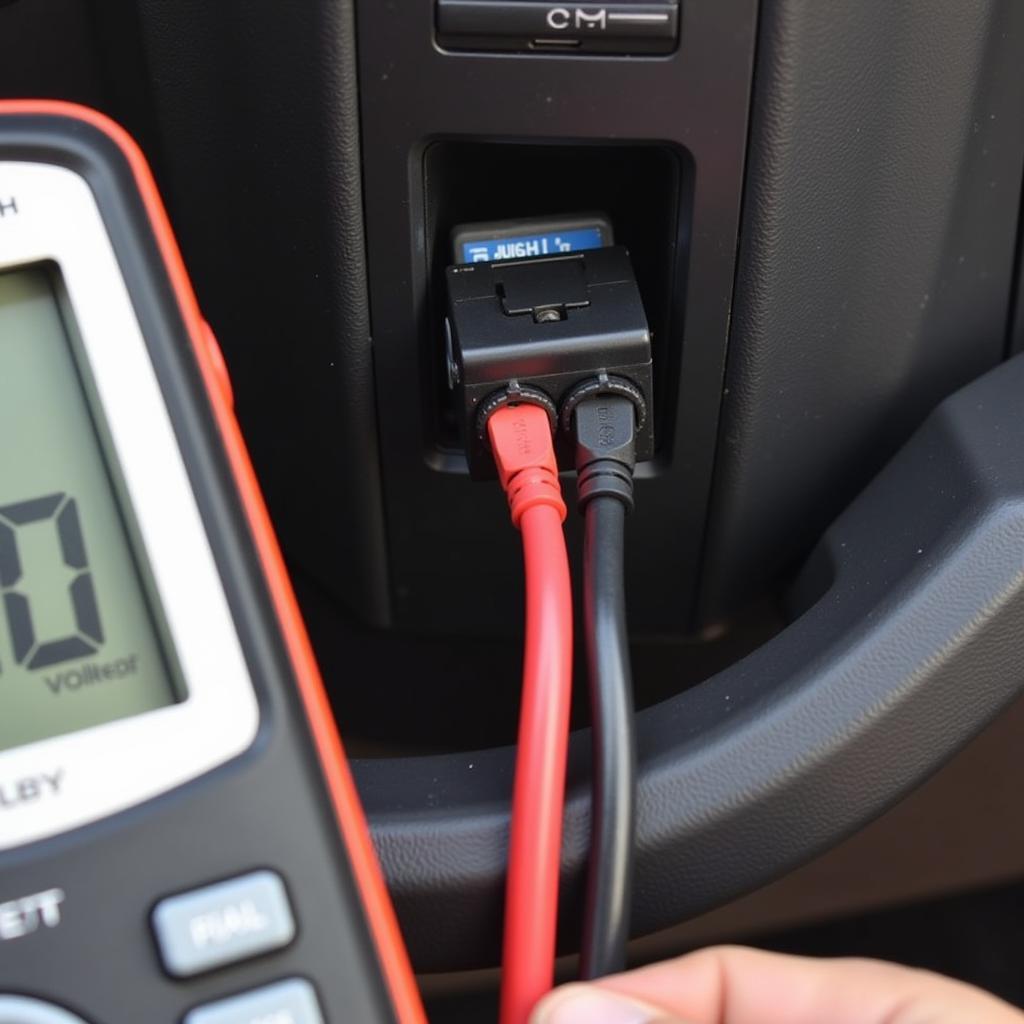 Testing the Silverado Trailer Brake Controller Output
Testing the Silverado Trailer Brake Controller Output
-
Disconnect and Reconnect the Battery: Disconnecting your Silverado’s battery for a few minutes can sometimes reset the ECU and potentially resolve software glitches that may be triggering the warning light.
Word from an Expert: “Always remember to disconnect the negative terminal of the battery first and reconnect it last to prevent electrical shorts,” advises seasoned automotive electrician, Mark Stevenson.
-
Test with a Different Trailer: If possible, try connecting your Silverado to a different trailer with known working brakes. This can help determine if the issue lies with your truck or the original trailer.
Potential Solutions
Depending on the source of the problem, you might be able to resolve the issue yourself:
-
Clean or Replace Corroded Connections: If you identify corroded connections on the trailer hitch or wiring harness, clean them using a wire brush and electrical contact cleaner. Apply dielectric grease to the connections to prevent future corrosion. If the connections are severely damaged, replace them with new components.
-
Replace the Trailer Brake Controller Fuse: If you find a blown fuse for the trailer brake controller, replace it with a new fuse of the same amperage rating. Ensure the fuse is properly seated in the fuse box.
-
Consult a Qualified Mechanic: For more complex issues like a faulty trailer brake controller, internal wiring problems, or problems with the trailer’s brakes themselves, it’s best to seek assistance from a qualified mechanic specializing in trailer brake systems.
Conclusion
A “Trailer Brake System” warning on your 2014 Chevy Silverado should never be ignored. It signals a potential issue that could compromise your safety and the safety of others on the road. By understanding the common causes, diligently troubleshooting the system, and addressing the underlying problem, you can ensure your truck and trailer are in optimal condition for safe towing. Remember, when in doubt, consulting a qualified mechanic is always recommended for a thorough diagnosis and repair.

